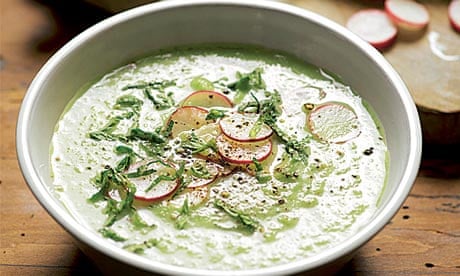Food literally changes your biochemistry and gene expression
Did you know that the food we eat is so powerful that it turns our genes on and off, to alter our weight, blood pressure, blood cholesterol, cancer growth, and even our chances of healthy ageing, among numerous other aspects of our health? Until recently, it was believed you were stuck with the genes you were born with. But we know from research now that your genes get turned on and off and are expressed to greater or lesser degrees depending on your diet and lifestyle factors. The impact of nutrition on our genes is called nutrigenomics.
It may be that our genes load the gun and are responsible for our predisposition to getting certain illnesses, but our diet and lifestyle pull the trigger, and largely influence whether or not we get them. Nutrition is powerful medicine you can use to your advantage. It can literally change your life.
A healthy diet can make a big difference in your life but what happens if you don’t know how to start? A Nutritional Therapist can help set you on the right path to healthy living and ageing.
How can a nutrition professional help you?
So what’s to understand about good nutrition?! Everyone knows what a balanced diet is, right? There are articles on healthy eating in every newspaper and magazine. Why would you want to go to see someone to tell you what to eat?!! Your mum did that for you, didn’t she?
Most people get – on a conceptual level at least – that they should probably eat a bit better than they do, they should probably move more and take the time for more ‘me time’ to live a long and happy life.
‘Life’ seems to get in the way of achieving that. Many of us are juggling jobs and the complexities of modern relationships, leaving little time to dedicate to the business of ‘being healthy’. Convenience often wins. It’s not that that’s wrong per se, but here’s the thing: all the time we are not eating or moving or living well, we are silently getting unhealthier.
That may actually be going-to-hospital sick or it may just mean having health niggles that bother us greatly but that we have learned to cope with or accept as inevitable. I’m talking about things like IBS or other tummy troubles, PMT, arthritis, skin conditions, stress or anxiety, haywire hormones, or possibly weight that has crept on over the years and you can’t seem to shift it, no matter what you try.
What I want to share with you today is that the food you eat matters more than you can possibly imagine. Research confirms over and over again that every time you eat, you are literally self-medicating because food changes your biochemistry, and can make you feel rotten- or at the top of your game.
Amazingly, in many cases, simply by making changes to your diet, improving the quality of your sleep and exercising correctly, many illnesses can be prevented or the symptoms improved so markedly that there is a really profound shift in how you experience life. I’ve seen it happen many times and it’s actually a lot easier than you might be thinking.
Putting your nutrition knowledge into actual daily practise
Although Nutritional Therapy is evidence-based, and there are hundreds of thousands of research papers on the power of nutrition on health, it used to be referred to dismissively as ‘complementary medicine’. It’s only now that the science of what and how to eat is getting the recognition it deserves and is being actively promoted by a small number of well-known and recently enlightened conventional medical doctors, like Dr Rangan Chatterjee and Dr Michael Mosely.
Essentially, Nutritional Therapists apply the latest research in nutrition and health sciences to you and your symptoms and formulate a diet, lifestyle and (sometimes) supplement plan to support the body’s own healing processes. They also use the latest cutting-edge tests to help pinpoint key imbalances in the body’s functioning, where appropriate. If they’re health coaches too, they will focus on enabling you to put that knowledge into practice. Because what’s the point of having nutrition knowledge if you can’t put the ideas into practice in a meaningful way, or break through whatever barriers have held you back in the past?
Personalised detective work to find the root cause
Nutritional Therapists take a very personal approach. You might hear practitioners talk about people being ‘biochemically unique’. That means that there isn’t a single way of eating (or lifestyle for that matter) that is right for everyone. Isabel might have IBS and you want to lose weight, for example. Isabel might have a history of antibiotic use, while you had your gall bladder out when you were 14. Isabel might have an intolerance to dairy, while you hate strawberries. I could go on, but you can imagine the thousands of different permutations here. And the fact is that your DNA, previous medical history, any current symptoms as well as what you like and don’t like, not to mention your personal circumstances are all important when a Nutritional Therapist creates a plan for you. There is no way the same “protocol” is going to work for Isabel, and for you.
Raise your hand if you’ve ever gone to the doctor, weren’t seen on time and then spent just a few minutes with your doctor before being ushered out? Or perhaps your health care provider sent you home with a few new prescriptions and no real explanation as to why your health was suffering? While most traditional GPs really do their best, unfortunately, they only have a maximum of 10 minutes to spend with you, they treat your symptoms rather than finding the root cause, and often you walk out with a dissatisfied feeling. A Nutritional Therapist invests a lot of time and skill to dig down deep, and do the detective work needed to find contributing factors, thread them all together and find root causes of symptoms.
You could of course download something from the internet – if you knew what you were looking for – but it’s not the same as having someone connect the dots and put everything together for you, and then give you the support you need to make the adjustments fit into your daily life long-term. A Nutritional Therapist may also work with supplements targeted to a specific condition or your own health goal. This can be a minefield – potentially dangerous and inevitably costly – if you don’t know what you’re doing.
Functional Medicine is the way forward: connecting genetic, environmental, diet and lifestyle factors
It’s unfortunate that so many people don’t understand what a huge effect a personalised food and lifestyle programme can have on the symptoms they have or how they experience their life.
Newspapers are full of soundbites about the latest foods, but they don’t really join the dots, and it’s difficult to see what might be possible for you. I’ve been told by GPs themselves (some of whom have been clients) that the vast majority of doctors – even those being trained today – have next to no current knowledge or practical experience of what their patients should be eating or how they might integrate the theory into their actual daily lives. They live in a world, by and large, where the primary solution presented during your 10-minute session lies in a prescription. They have few other options available to them.
Some – like Dr Chatterjee – are taking on training in something much bigger called Functional Medicine, often referred to as the future of 21st century medicine. Most Nutritional Therapists in the UK have been trained in the Functional Medicine approach. This addresses the whole person, not just an isolated set of symptoms because it views the body as one integrated system, interacting like a web, rather than as a collection of independent organs divided up by medical specialties. Functional medicine practitioners spend time with their clients, listening to their histories and looking at the interactions among genetic, environmental, diet and lifestyle factors that can influence long-term health and complex, chronic disease.
If you think about it, nearly all medications merely suppress symptoms. Only very few are an actual cure – antibiotics come to mind here, one of the most important innovations in medical history, to which we owe much. The exclusively pharmacological approach conventional medicine so often employs usually does little to uncover the root causes. Metformin lowers blood glucose – but why is it high in the first place? Statins lower cholesterol – but why is it elevated? Non-steroidal anti-inflammatory drugs (NSAIDs) numb pain – but why are you in pain? These are the questions nutrition professionals will ask before embarking on a quest to find out the root cause.
What happens in a nutrition consultation?
Your first consultation will last around 60 to 75 minutes. You will have been asked to complete and send back a nutritional therapy questionnaire before you visit. This is in your interests as I analyse it and research where necessary in advance of your visit, so that we can get you moving forward straight away when we meet. During the session we’ll clarify your medical history, your health goals and any other challenges you’re facing, what you generally eat, what you like to eat, what you hate to eat and how you have to eat (on the bus, in a rush at your desk, and so on). It’s a partnership rather than me prescribing what you should be eating and doing (which usually doesn’t work, unless you’re the type of person who works best when someone explains what you need to do and you then just go off and do it come high or hell). I always explain to you why I’m recommending something and then if you’re happy to go ahead we discuss how you can put it into practice.
Nutritional Therapy programmes usually run over a period of months. That’s because most of us need longer term support to help us implement the programme, make changes in a way and at a pace that suits us, and to deal with any challenges or questions that come up.
What if I already know what to do?
Knowing what you should be doing is only part of the problem if you are unhappy with an aspect of your health. Integrating your programme into habitual daily life and staying motivated for the long haul is the hardest part of any plan. The single best way to stay in the zone is to have a buddy or coach who can give you a nudge or call you out if you start to go off piste. I’d say this is the single biggest thing that makes the difference between reaching your goal and actually staying there. That’s where health coaching comes in. It keeps you accountable and on track to ensure all that good work doesn’t go to waste.
If you’d like to know how you can take back control over your health and weight, and see if Nutritional Therapy is right for you, please book in a complimentary call here. I’d love to speak to you!
https://app.acuityscheduling.com/schedule.php?owner=14670092


